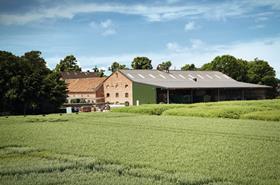
Bayer has announced the European launch of its global Carbon Initiative, designed to ensure the decarbonisation of the food value chain. It focuses on farmers’ activities for a more resilient and sustainable food system.
The initiative brings together farmers and food value chain players to explore future reward structures for farmers implementing new carbon reduction practices and thus contributing to the Green Deal objectives of the European Commission.
According to Bayer, the new European Carbon Program recognises the pivotal role growers and their land can play in helping to create lasting, positive environmental impacts, and is an integral part of Bayer’s sustainability commitments specifically aimed at reducing field greenhouse gas (GHG) emission by 30 per cent in 2030.
Working with farmers
“Our Carbon Program actively contributes to the development of carbon farming activities in Europe by working directly with farmers in their role as primary producers and involving companies throughout the food value chain,' said Lionnel Alexandre, carbon business venture lead for Europe, Middle East and Africa at Bayer Crop Science. 'This collaboration at a food value chain level will help decarbonise the European food system in a way that works for farmers, the environment and consumers.
“The main idea is to reward growers for adopting climate-smart farming practices like using cover crops, tillage reduction, crop rotations and precision nitrogen application,' Alexandre explained. 'These activities sequester carbon in the soil while improving soil health, resilience and productivity as well as limit emissions.”
To support these operations, Bayer will develop a digital tool which will allow farmers to claim rewards based on accurate and verified data.
This digital Monitoring, Reporting and Verification (MRV) solution builds on Bayer’s digital farming platform Climate FieldView.
Seven countries involved
The 27 participating farmers from seven countries are collectively contributing about 500 hectares of land from their farms based in France, Spain, Belgium, Denmark, Germany as well as Ukraine and the UK.
Central to the European Carbon Program is the practice of co-creation: farmers, Bayer experts and food value chain players work together in a carbon farming lab where they can jointly test activities and generate learnings.
Discussions with several food processors and retailers are ongoing, and they are expected to join the Carbon Program by the end of the year, Bayer confirmed.
How it works
After establishing the current carbon content in the participating farmers’ lands as the baseline for the project, farmers will implement climate smart farming practices like using cover crops and tillage reduction. This implementation of new practices will be continuously monitored and improved.
The learnings and the further insights gained from the participating project partners from across the food value chain will inform the design and implementation of an accurate and reliable digital MRV tool.
The programme is expected to deliver this new digital solution in the next three years, while its implementation within Climate FieldView is planned for the third year.
“An intact soil structure and organic matter soil management are decisive for securing my income”, said Stefanie Peters, Agro-Farm GmbH Nauen and part of the Bayer ForwardFarm network. “In my opinion, carbon farming, the sequestration of carbon in the soil, can make a great contribution to this. I am also looking forward to working with a variety of partners within Bayer's carbon programme.”
Global initiative
The European launch is part of the company’s Global Carbon Initiative which launched in the US and in Brazil in July 2020.
In these countries, Bayer was the first agriculture company to offer all the necessary technologies in terms of seeds and traits, crop protection and digital solutions, cost-efficient MRV and certification according to internationally recognised standards.
“Our vision is that in the future, food retailers or food processors will be able to work with confidence on effective carbon emission reduction projects involving their partner farms from their specific supply chains,' noted Alexandre Teillet, head of new business models at Bayer Crop Science for Europe, Middle East and Africa. 'At the same time, farmers, as primary producers of a stable and longer food value chain, shall be rewarded in a transparent and fair way – for their effective carbon emission reductions conducted through their farming practices everywhere in the world.”



